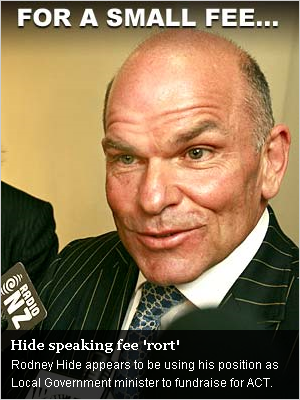I almost choked on my chardonnay when I read over the weekend a quote from Chris Trotter stating that Bomber Bradbury represented the future of NZ Left thinking. Martin is a genial enough, alternative-minded, progressive niche market entertainer with strong opinions, generally good intentions and a decent grasp of current affairs. But Chris must have dropped an E to be that generous in his assessment of Bomber’s contributions to NZ’s Left intelligentsia. He also mentioned Jordan Carter as an up-and-coming Labour strategist, which seems to be less a product of party drug induced rapture and more of a wide-spread consensus amongst Lefty consignieri (and Labour Party consiglieri) about Jordan’s talents as a party strategist.
That got me to thinking about who are the next generation of NZ’s Left thinkers. I have had a fair share of young progressives pass through my classes while engaged in university teaching in Aotearoa (including, I believe, both Jordan and Bomber), which makes me wonder who in the under 40-generation will inherit the mantle that Chris, Matt McCarten, Laila Harre and very few others currently represent (not that I think that the over 40’s are finished in terms of their contributions to activism and Left political thought–it is the future of the ideological school that has been piqued in my mind by Chris’s comment). Note that I am not thinking exclusively of activists, academicians or politicians, and am trying to get an idea of the wide swathe of young Left thinkers that may be out there.
I of course am biased in favour of my colleagues here on KP Anita and Lew, who I think represent the sharper edge of Left-leaning bloggers. Idiot Savant is another blogger who seems to fit the bill, as do some of the authors at The Hand Mirror, and some of the folk over at the Standard exhibit intellectual depth beyond their obvious partisan ties. Bryce Edwards might be one who straddles the gap between blogging and academia (although truth be told, I know little of Bryce’s scholarly writing and am quite aware that there are very few quality Left academicians in NZ social science departments–most are po-mo or derivationist navel-gazing PC knee jerkers with little to offer by the way of contribution to modern Marxist, neo-Marxist or post-Marxist debates). There are bound to be young Maori who can contribute to future Left debates from more than a reflexive, grievance-based perspective. Of the neo-Gramscians, Kate Nicholls is a personal favorite of mine, but I am too close to her to be fully objective. For their part, I do not think that Stalinist or Trotskyites represent the future of NZ Left praxis, much less thought.
The issue is important because unless the NZ Left can rejuvenate itself intellectually and separate its scholarly tradition from the base practice of partisan politics and street-level activism, then it will cede the field of reasoned debate to the intellectual Right, something that in turn will have negative consequences for the overall prospects of progressive change in the country. In other words, the Left needs to reproduce itself intellectually as well as politically if it is to compete in the market of ideas that in turn influences the way in which the very concepts of politics, citizenship, rights, entitlements and obligations are addressed.
I therefore pose the question to KP readers: who would be on your short list of young NZ Left intellectuals who represent the future of progressive thought in Aotearoa?



